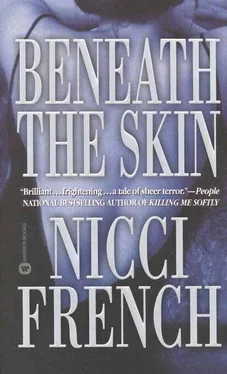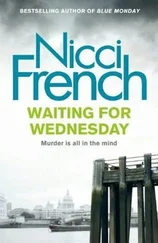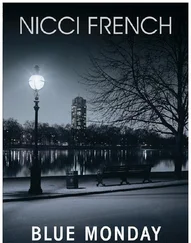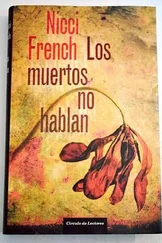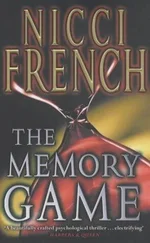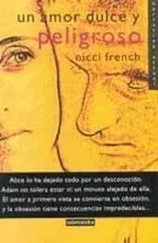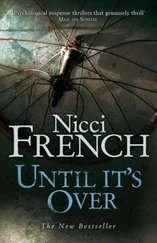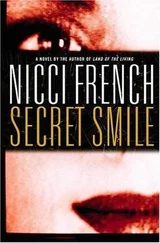“What?”
“Among other things, five juggling balls.”
He looked at me as if he didn’t understand.
“Five,” I repeated. “What do you think of that?”
“That’s amazing,” he said, clearly impressed.
“My master plan is to get out of this work altogether, but in the meantime I haven’t exactly been standing still.”
“Show me,” he said.
“Here?”
“Go on, show me.”
“Do you really want me to?”
“I have to see it.”
I looked around. The café was almost empty. I took the balls out of the bag, three in one hand, two in the other. I stood up.
“Are you paying attention?” I said.
“Yes.”
“You have to concentrate.”
“I’m concentrating.”
I began. It went right for about one second and then they went everywhere. One hit Josh, one hit my empty coffee cup.
“That gives you the general idea,” I said, and scrambled under the table for one that had bounced into the corner.
“Is that it?” he said, smiling.
“Well if it was easy, everybody would be doing it.”
“No, it was great,” he said, and he started laughing and laughing. Maybe this was my gift to Josh, and my good-bye: Nadia the jester, the one who didn’t die, throwing colored balls around in a dark little café. A giggle, or maybe it was a sob, rose in my chest. I gathered the balls and put them back in the bag.
“I better get going,” I said.
“Me too.”
We kissed at the door of the café, once on each cheek, and then went out into the blasting cold. As we turned to walk off in our separate directions, he said:
“I still put flowers on her gravestone, you know.”
“I’m glad,” I said.
“I don’t forget.”
“Oh Josh,” I said. “You’re allowed to forget sometime. Everyone’s allowed to forget.”
But as I went down to the canal path and walked along it, toward my flat, I thought to myself: I can’t forget. I won’t forget them, the women who died. Zoe and Jenny. Sometimes I know that they are gone. They are not here, and never will be again, no matter how I wait for them, these women I never met. But I still catch myself believing that I will see them when I round the bend in the road, when I climb on board a crowded bus and make my way up the aisle looking for a seat, when I scan the faces in a moving crowd looking for a friend I was supposed to meet, when I open my eyes in the morning after a dream that seemed real, even when it was over.
I know their faces so well, better than the faces of anyone else, better than the face of my mother, my father; better than the face of a lover I once gazed at with passion and hope. I know their faces like my own face in the mirror. I have stared and stared at them, searching for clues, begging them to yield up their meanings, to help me. The tilt of a nose, the lift of a chin, the exact way she smiled, teeth gleaming; the exact way she frowned, with that little furrow between her eyes. Every wrinkle, groove, line, shadow, hollow, blemish, hurt.
I never met them, yet I miss them. I never knew them then, yet I know them now, when it’s too late. I know them in a way no one else ever could. They would have known me too. We might not have liked each other, but we are sisters under the skin, for their fear was my fear, their shame was my shame, their rage was mine, and their panic, and their violation, and their sense that there was nothing they could do, and their knowledge that the horror was coming nearer and nearer. I know what they felt. I felt it too.
Others will gradually forget them, or at least they will let them go. That’s how it should be when someone dies. The people who told them they loved them will say the same words to someone else. That’s fine, that’s right; that’s the only way we can cope with life. We’d go mad if we remembered everything-and hung on to it. So they’ll slide away. All their flaws and their irritating habits and their particular ways will fade, and they’ll become vague, less vivid and less human. Too good to be true: blank, shiny surfaces where other people can stare at their own reflections. Their graves will be visited more and more infrequently; soon only on anniversaries and days of special importance. People will tell stories about how they once knew them, for proximity to tragedy makes us feel somehow important. They will use a reverent and hushed voice to talk of them: Oh yes, wasn’t it terrible, what happened to Zoe, to Jenny? Wasn’t it sad?
But I can’t forget them like that. I have to carry them with me wherever I go now; through the life I have got back again, through the years they didn’t have, all the love and loss and change they never knew. Every day I say to them again: Good-bye.

Under the pseudonym of Nicci French, hides a couple of London journalists, Nicci Gerrard and Sean French, who conceive and write together psychological thrillers.
***

